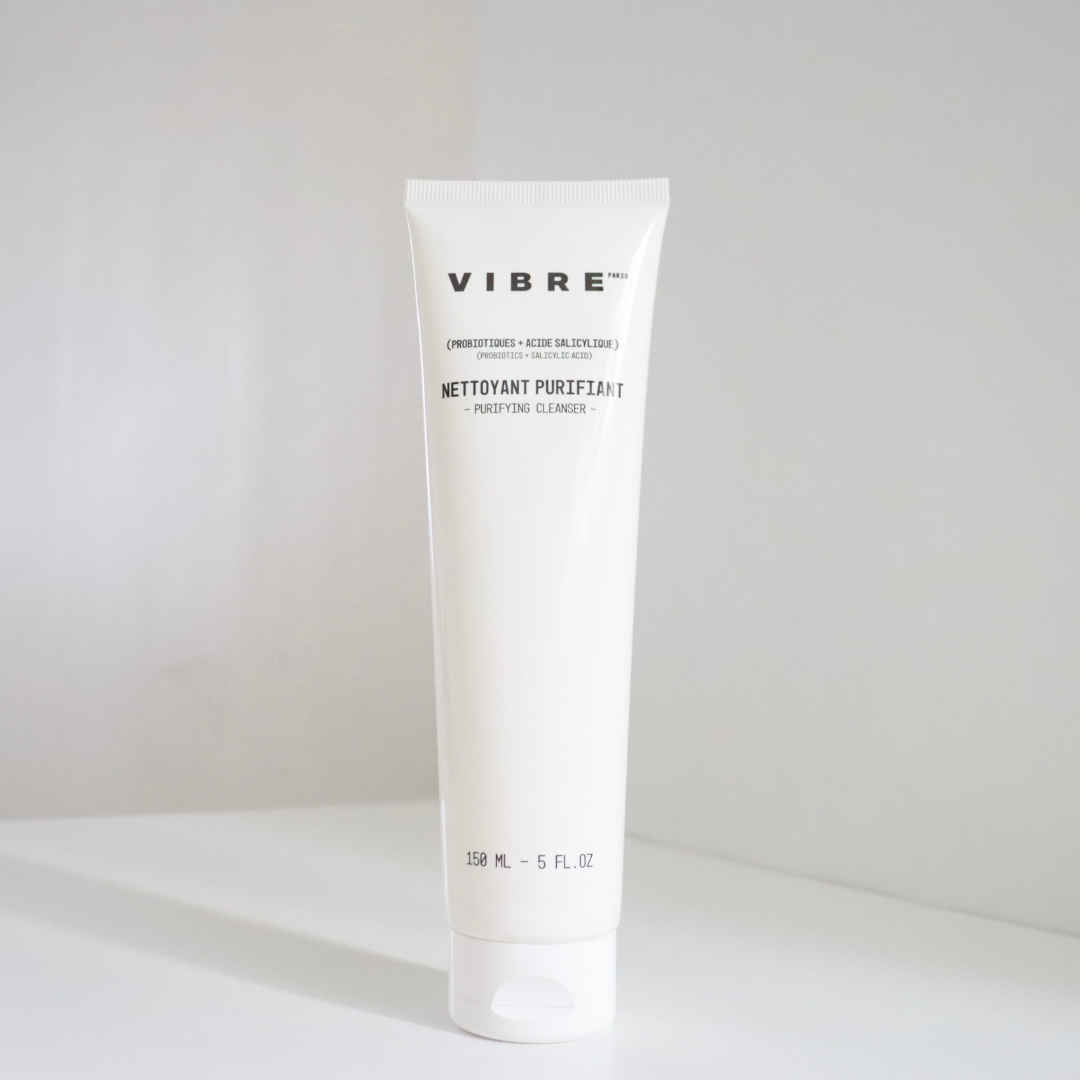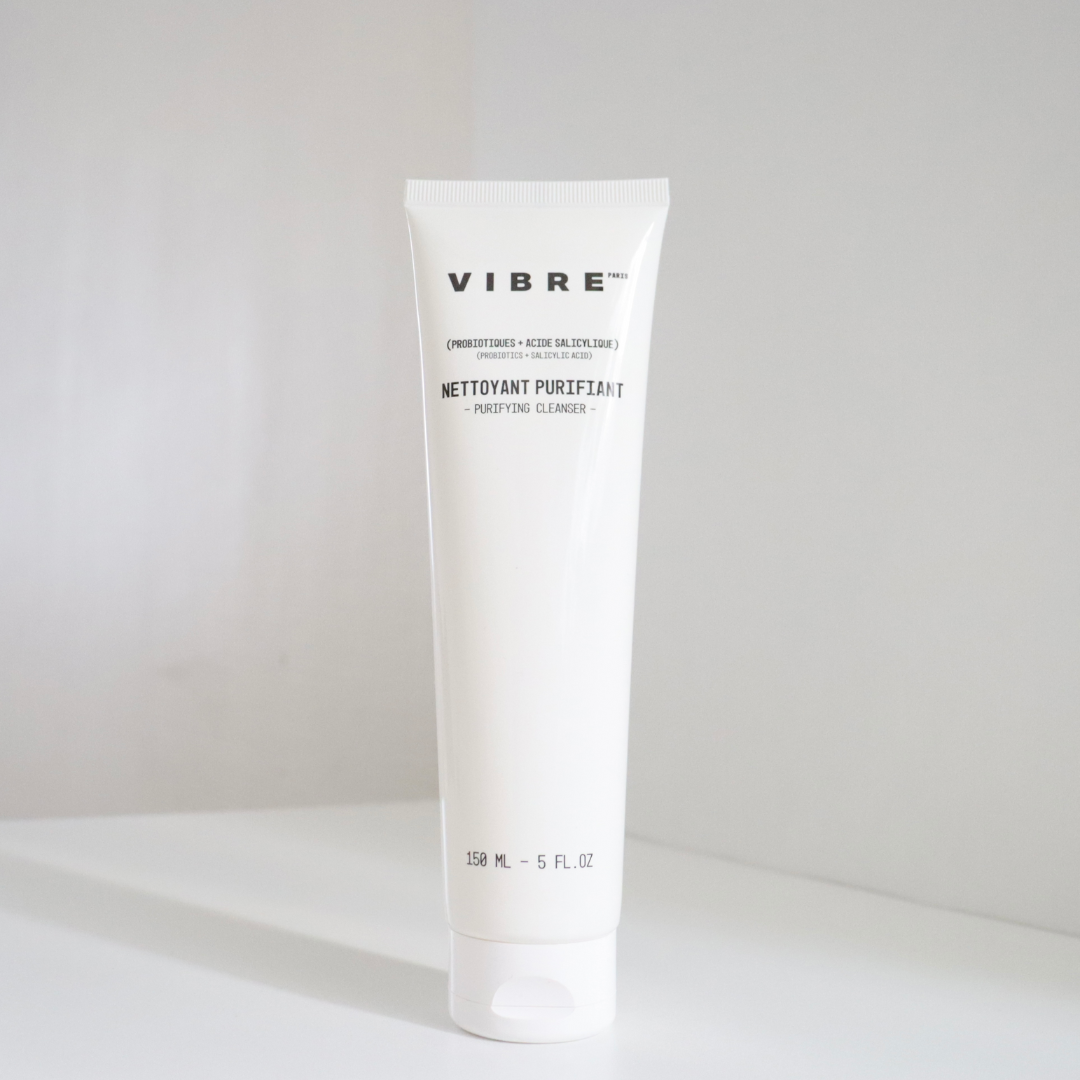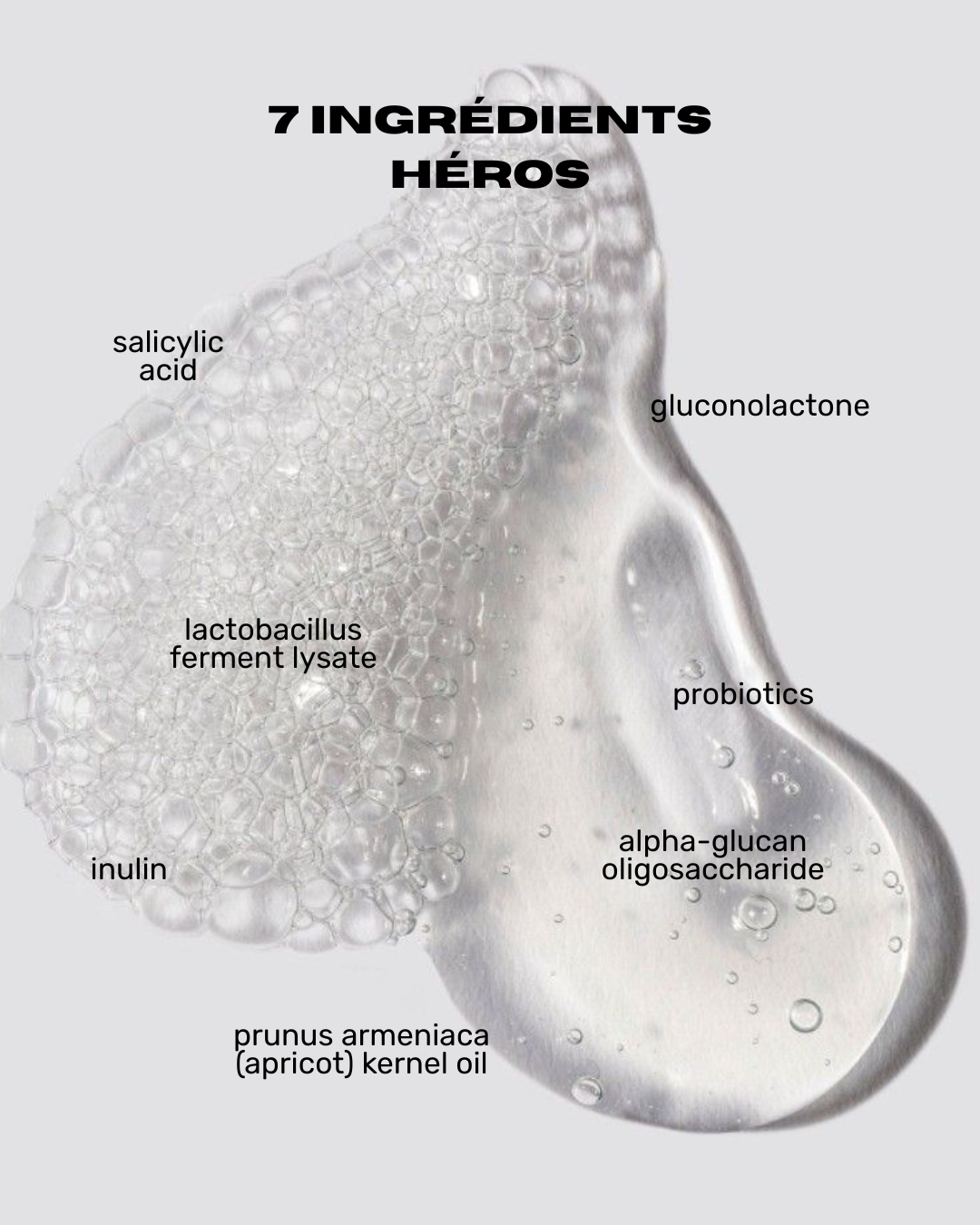Dry skin | causes and suitable care
Anais BambiliDry skin can be a common concern for many people, affecting not only comfort but also the skin's appearance. Understanding the causes of dry skin and learning how to address it is essential for maintaining healthy, radiant skin. In this article, we will explore the different aspects of dry and dehydrated skin, from its causes to how to care for your skin to prevent and treat this issue.
Causes of Dry Skin
Skin dryness can be attributed to several factors, some related to the skin's natural characteristics and others to external elements that act on or beneath the skin's surface.
Understanding these causes is crucial for choosing appropriate solutions.
- Produced by the sebaceous glands
The skin's appearance depends on sebum production, which is produced by the sebaceous glands. These glands are responsible for maintaining skin suppleness and protecting it against water loss. However, with age, sebum production can decrease, which can lead to dry skin.
- Skin Age
Skin aging is inevitable, and over time, the skin loses its ability to retain moisture. Skin becomes dry or very dry, even dehydrated.

- Top Layer and Skin Barrier
The top layer of your skin, also known as the skin barrier, plays a vital role in preventing water loss. If this barrier is damaged, your skin becomes more prone to dryness.
How to Get Rid of It
Now that we've looked at the main causes of dry skin, here are some ways to address it:
- Moisturize Your Skin
Moisturizing is key to combating dry skin. Using hydrating products suited for your skin type can help restore and maintain its moisture balance. Choose creams rich in ingredients like shea butter and ceramides, known for their hydrating properties.

- Tailored Skincare and Taking Care of Your Skin
Adopting a skincare routine tailored to your skin type is essential. Use gentle cleansers that don't strip away your skin's natural oils. Additionally, choose products that protect the skin barrier, which helps prevent dry skin.
- Shea Butter for Deep Hydration
Shea butter is an excellent ingredient for combating dry skin. Thanks to its emollient and nourishing properties, it helps restore skin moisture and strengthen the skin barrier. Incorporate products containing shea butter into your daily routine for lasting results.
- Skin Aging and Protection Against Dry Skin
As you age, it's crucial to adapt your skincare routine to meet your skin's changing needs. Use anti-aging products that specifically target skin aging, while also providing enough hydration to combat dry skin.
Taking care of your skin is an investment in your overall well-being. By understanding the causes of dry skin and adopting appropriate skincare habits, you can effectively prevent and treat this issue.
Here are some additional tips for healthy skin
Now that we've covered the basics of combating dry skin, let's explore additional tips and in-depth information to ensure healthy, well-hydrated skin.
- The Importance of Understanding Your Skin Type
While all skin shares the same basic structure, each person has a unique skin type, meaning skincare needs can vary significantly from one individual to another. It's essential to understand your skin type—whether it's normal, dry, oily, combination, or sensitive—to tailor your skincare accordingly.
- Choosing Products Suited for Your Skin Type
When choosing skincare products, make sure they are suitable for your specific skin type. Products formulated for dry and dehydrated skin are designed to provide extra hydration, while those for oily skin can help regulate sebum production.
- Avoid Overly Hot Showers
While a hot shower might feel soothing, it can actually contribute to dry skin by stripping away its natural oils. Opt for lukewarm showers and limit their duration to preserve your skin's natural moisture.
- Use Humidifiers
Humidifiers are effective tools for maintaining adequate humidity levels in the air, which is beneficial for your skin. Especially during winter months when indoor air tends to be dry, a humidifier can help prevent skin dehydration.
- Consider Your Diet
A balanced diet plays a crucial role in skin health. Make sure to eat enough foods rich in omega-3 fatty acids, vitamins, and antioxidants, which can help maintain healthy skin from within.
- Reduce exposure to environmental factors
External elements like wind, cold, and even excessive heat can negatively affect your skin's health. Use protective creams according to weather conditions and wear appropriate clothing to shield your skin from external damage.
- Adopt a nighttime skincare routine
At night, your skin has time to regenerate. By including specific products in your nighttime routine, such as richer creams and repairing serums, you can maximize the benefits for your skin's hydration.
- Consider professional treatments
In some cases, professional treatments, such as deep hydration at a beauty salon, can be beneficial for more intensively restoring skin hydration. Consult a skin professional to discuss the best options for your needs!
The importance of choosing ingredients to treat dry skin
Beyond a basic skincare routine, using biomimetic and natural ingredients can offer significant benefits in the fight against dry skin. Some ingredients, in addition to those mentioned earlier, are particularly known for their hydrating and nourishing properties.
- Ceramides
Ceramides are lipids naturally found in the skin's outer layer (skin barrier). They play an essential role in maintaining hydration by sealing water within the skin and protecting against external aggressors. Using products containing ceramides can strengthen the skin barrier and improve hydration.
- Hyaluronic Acid
Hyaluronic acid is a natural component of the skin's dermis. It has the ability to retain water, providing intense hydration. Products containing hyaluronic acid are effective for deeply moisturizing the skin and giving it a plump appearance.
- NMF (Natural Moisturizing Factor)
NMF is made up of various elements, such as amino acids, fatty acids, ureas, and sugars, which maintain the skin's natural hydration. Products containing NMF-mimicking ingredients help restore and maintain the skin's moisture balance.
- Cholesterol
Cholesterol is an essential lipid component of the skin barrier. Adding cholesterol to skincare products can help strengthen the skin barrier, preventing water loss and contributing to well-hydrated skin.
- Phospholipids
Phospholipids are lipids found in cell membranes. They help maintain the skin's structural integrity and can be used to strengthen the skin barrier, thereby promoting hydration.
- Biomimetic peptides
Some biomimetic peptides mimic those naturally found in the skin. They can stimulate collagen production and help improve skin firmness and elasticity, indirectly contributing to optimal hydration.
- Glycosaminoglycans (GAGs)
GAGs, such as chondroitin sulfate and dermatan sulfate, are found in the dermis and have the ability to retain water. Their use in skincare products can contribute to effective hydration.
- Plant oils for deep hydration
Natural plant oils, such as sweet almond oil, argan oil, and olive oil, are rich in essential fatty acids and antioxidants. These compounds help deeply hydrate the skin, leaving it feeling soft and supple. You can incorporate them into your skincare routine by using them as cleansing oils or adding them to your moisturizers.
- The benefits of aloe vera
Aloe vera is a versatile ingredient known for its soothing and hydrating properties. It can be used directly on the skin, as a gel, to calm irritations and deeply moisturize the skin. Many hydrating creams and lotions also contain aloe vera to maximize skin benefits.
- Benefits of honey for soft skin
Honey is another natural ingredient that can benefit dry skin. It has antibacterial and moisturizing properties, creating a protective barrier on the skin while nourishing it. Honey face masks can be an excellent option to revitalize the skin and restore its natural glow.
Adapting to your skin's seasonal needs
Your skin's needs can change with the seasons. During winter months, cold, dry air can worsen dry skin. Adjust your skincare routine to meet seasonal demands and prevent skin issues.
- Intensive winter skincare
During winter, when air humidity is often lower, it's crucial to intensify your skincare routine. Choose thicker creams and intensive moisturizing products to protect your skin from cold wind and increased dehydration.
- Year-round sun protection
Daily use of sun protection is an important step to prevent skin damage, even during colder months. UV rays can contribute to skin dryness and premature aging, so keep sun protection as an essential part of your routine.
- The importance of consistency in skincare
Consistency in your skincare routine is crucial for achieving lasting results. This goes beyond regularly applying products. It also involves maintaining a skincare routine tailored to your skin type and adjusting it according to your skin's changing needs throughout the seasons and years.
- Avoid frequent product changes
While it's tempting to try new products in search of quick fixes, avoid frequently changing your skincare products. Skin needs time to adapt to products, and a consistent routine is more likely to lead to positive results.
- Monitor skin reactions
Every skin reacts differently to products. Pay attention to your skin's reactions and adjust your routine if you notice signs of irritation or allergy. If in doubt, consult a skin professional for personalized advice.
Dry skin is a common challenge, but with a comprehensive skincare approach, it's possible to prevent and treat this issue. By incorporating natural ingredients, adapting your routine to the seasons, and maintaining consistency in your care, you can keep your skin hydrated, balanced, and healthy. Remember that everyone's skin is unique, so experimentation and adjustment are essential to find the perfect routine that meets your specific needs. By investing time and attention in your skincare, you can achieve radiant skin that reflects your overall health and well-being.






